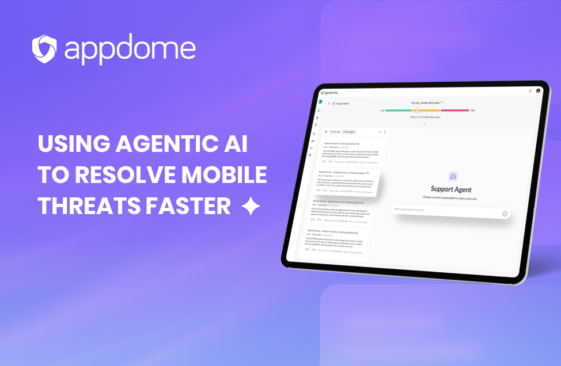Location matters. Particularly in today’s mobile landscape, where ensuring the accuracy and trustability of mobile location information is a critically important function. Mobile brands rely on location data to deliver secure and lawful mobile app operations, protect user privacy, prevent fraud, and meet regulatory requirements, while at the same time delivering on business and marketing objectives.
Location is integral to a mobile brand’s business model and experience, whether it’s verifying location for a streaming subscription, the location of a prospective date, banking transaction assurance and more. Geo compliance is stitched together with the business and can even be used to enable new services, targeted offers, and more.
There are essential legal and regulatory considerations. For example, gambling and lottery apps rely on accurate geo location information to ensure their mobile apps are only used in locations, regions or countries where it is legally allowed to operate. Similarly, location is fundamental to the integrity of in-app transactions, to provide transaction traceability and other “Know Your Customer” (KYC) requirements, preventing fraud and scams.
Further, geo location plays a centerpiece role in identity verification, to ensure users in social media and dating apps are where they say they are. This is extremely important to protect mobile user privacy and safety (i.e. preventing catfishing, stalking, fake accounts or other campaigns to steal money or extract personal information from victims). Similarly, in gig economy apps, location plays an important role in passenger location integrity as well as ensuring gig-workers don’t falsify location to hoard gigs or evade taxes.
Net-net geo location (compliance) is more critical than ever as the mobile channel continues to now dominant the digital landscape.
Mobile Brands Need a Better Way to Ensure Location Integrity
So mobile app brands have a big challenge when it comes to mobile location. On the one hand, accurate location is fundamental to the overall integrity of their mobile app and their business model. The mobile app and business must ensure accurate location to deliver on their brand promise to protect users, comply with regulations and meet business objectives, relying on location data provided by the mobile device/OS.
The mobile OS and device industry has spent billions of dollars to ensure that mobile location is amazingly accurate. But mobile users and bad actors are using increasingly sophisticated ways to fake their location, exposing brands to reputation and compliance risks. Bad actors have many easily accessible tools and methods at their disposal to manipulate location information in a mobile app, such as fake GPS apps, fake accounts, unauthorized VPNs, SIM swapping schemes, hooking frameworks, GPS signal spoofing, or manipulating sensors such as the gyroscope or accelerometer, and more.
Mobile brands and developers need a better way to trust and guarantee the integrity of the location data their apps use. Rather than rely on products that offer overlay networks of geolocation with complex SDKs and third-party network connections to apps, a better way to to trust the OS/device maker and instead focus on in-app compromises to location providing telemetry data to AI customer management systems with client-side enforcement options.
To do this effectively, mobile brands need a greater array of signals not only for location, but also other potential attacks against mobile apps, to get a unified picture of mobile app security – which is not available from geo compliance point products. Appdome Geo Compliance solution rises to these challenges, fostering trust in the integrity of the location presented by the mobile user or device.
Here are the top five ways mobile developers can use Appdome to ensure the authenticity of location information in any mobile app:
1. Stopping Fake Location and GPS Spoofing
Attackers can manipulate GPS signals or sensors to provide false location data, compromising app functionalities or impacting app monetization. This manipulation can lead to severe consequences, such as bypassing licensing controls, presenting fake information in dating apps, or evading geographic restrictions for streaming services. Appdome’s Geo Compliance solution identifies and blocks specific hooks and malicious methods employed by attackers to interfere with device-level geolocation, effectively preventing fake location and GPS spoofing.

2. Blocking Fake GPS Apps
Fake GPS apps empower attackers to manipulate location data by setting the location provider of the device to be controlled by Fake GPS app instead of the authentic location provider. These malicious Fake GPS Apps allow users/hackers to engage in location spoofing, license control bypass, and evasion of geo-fencing requirements that restrict the use of services to specific geo locations (which may be tied to compliance requirements or critical to the app’s business model). Each of these activities undermines the original intent of the app maker or mobile developer. Appdome’s Geo Compliance solution offers mobile brands the power to block the use of fake GPS apps, ensuring the accuracy of location-based services and ensuring the security and integrity of location data in mobile apps.
3. Blocking Unauthorized VPNs
Unauthorized use of VPNs in mobile apps introduces risks by allowing users to hide their true IP addresses, enabling malicious activities such as bypassing geo-restrictions, accessing restricted content, conducting MitM attacks, and more. When traffic is routed through an untrusted VPN, app makers cannot ensure that the app is connect to their trusted servers, since attackers could re-route the traffic to terminate at a malicious endpoint. Appdome detects if an untrusted VPN is being used with the mobile application. This helps app publishers and developers comply with regulations, enforce geo-restrictions, prevent piracy, and meet KYC requirements.
4. Detecting Random Locations and Teleportation Attacks
Intricate teleportation attacks involve attackers spoofing geo-location data or sensors in mobile apps to falsify location. Appdome Geo Compliance solution adds an additional layer of defense by detecting abnormal patterns in GPS data, such as the device appearing to travel between improbable locations (such as New York to Tokyo within a 5-minute interval for example). Appdome also identifies mismatches in location telemetry from on-device settings or components, including manual overrides to on-device location services.
5. Detecting Banned Locations
Enforcing restrictions on app usage in specific geographies can be challenging for brands due to alternative app stores and methods to sideload or circumvent device location. Appdome steps up to this challenge by allowing mobile brands to create whitelists or blacklists of locations. This capability prevents the use of their mobile app in specified areas, ensuring compliance with legal, regulatory, or business model requirements.
These defense methods offer mobile brands a superior and more cost-effective approach to solve geo location challenges as well as provide addition defenses and central monitoring visibility of threats and attacks in production apps.
Appdome’s unified approach provides mobile brands a streamlined operational framework to consolidate mobile defense objectives and priorities in a single automated system, saving work, time and costs associated with mobile app defense.
With Appdome, mobile brands achieve:
- Comprehensive defense: Appdome’s Geo Compliance solution is just one of a complete set of 300+ mobile apps defenses spanning mobile app security, mobile fraud, malware and cheat prevention, mobile bot defense and more.

- Automated delivery: Appdome offers an automated delivery mechanism with no code and no SDK. This means that mobile brands can seamlessly implement geo compliance measures into any Android and iOS apps instantly, without burdening their development teams. Similarly, Appdome Geo Compliance does not require any hardware, network or server requirements, and no changes to network configurations or remote servers.
- Real-Time, Proactive Monitoring: Appdome ThreatScope Mobile XDR gives cyber teams real-time monitoring and proactive defense against location based attacks. This visibility adds an extra layer of security, ensuring that brands stay one step ahead of potential threats. In addition, location-based threats can also be analyzed in the context of other threats that may be occurring in the mobile channel.
- Works in any CI/CD: Appdome Geo Compliance seamlessly runs right from within the existing DevOps CI/CD pipeline and tooling used by mobile developers to build and deliver apps at scale today. By contrast, most point solutions require additional steps or modifications to developer processes, causing friction and delays in the development pipeline. And for SDK point products, there is no CI/CD integration option, as they all require manual code changes on a regular basis.
We’re excited to add Geo Compliance to Appdome’s unified mobile app defense solution. Our goal is to allow mobile brands to “up their game” in mobile app defense and at the same time do less work through automation, gain more visibility and insights, and save money by not having to cobble together disparate point products. We think that’s a huge win for dev and cyber teams as well as the business. We look forward to showing you how we can help you achieve your geo compliance or other cyber defense objectives!
Want to learn more about how to use Appdome Geo Compliance to deliver on trustable mobile location services across any iOS and Android app? Click the button below to get a free 20-minute demo.
Request a Demo






